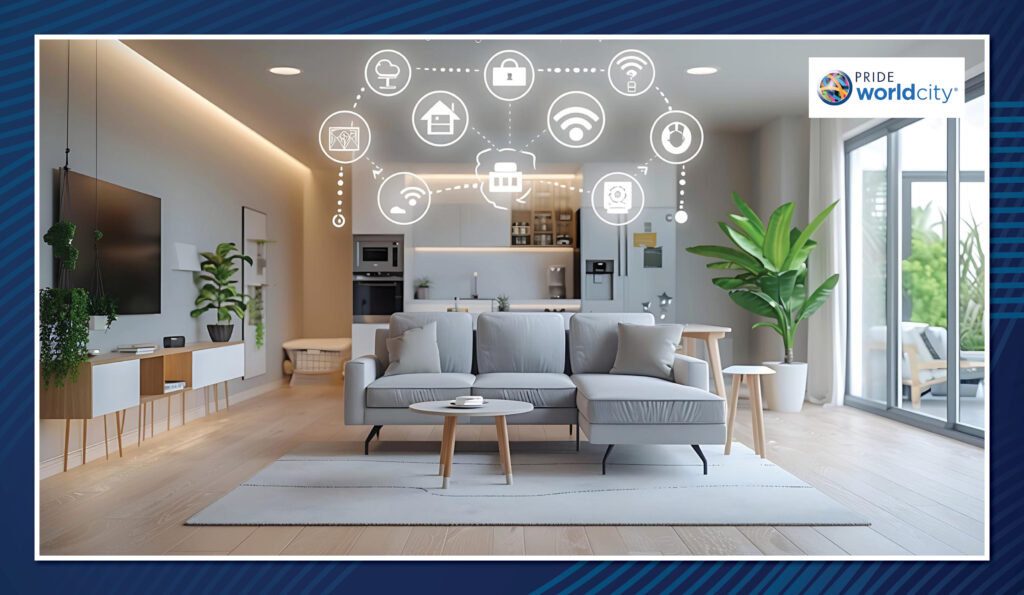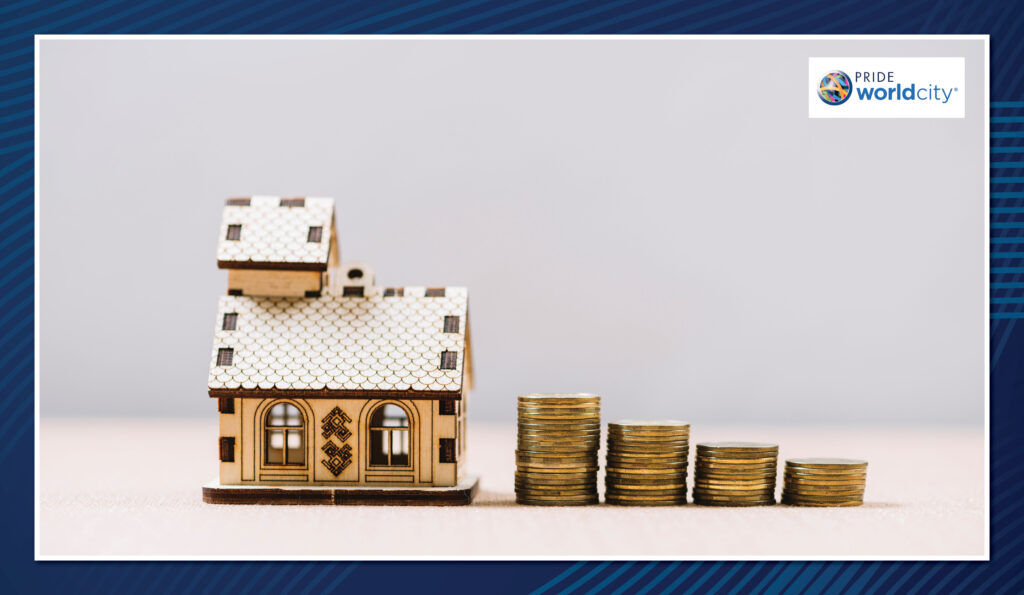The Rise of Smart Homes: Modern Apartments in Pune
The Rise of Smart Homes: Modern Apartments in Pune Introduction Welcome to the future of living—where your home isn’t just a place to live, but a seamless extension of your lifestyle. Smart homes are revolutionizing the way we interact with our living spaces, and Pune’s real estate market is at the forefront of this exciting transformation. Whether you’re searching for a 2 BHK property in Pune or exploring the array of 2 BHK apartments in Pune, modern technology is making its mark in the most delightful ways. The Evolution of Smart Homes From Traditional Homes to Smart Homes Remember the days when home automation was a thing of science fiction? Fast forward to today, and smart homes are not only a reality but a growing trend. The journey from traditional homes to smart homes is marked by significant advancements in technology, bringing features that make our lives easier, safer, and more efficient. Key Features of Smart Homes Automation: Control your lights, thermostat, and even your coffee maker with a simple voice command or a tap on your smartphone. Security: Enhanced security systems, including smart locks and surveillance cameras, provide peace of mind. Energy Efficiency: Smart appliances and energy management systems help reduce electricity bills and our carbon footprint. Benefits of Smart Homes in Pune Enhanced Security Imagine being able to lock or unlock your door remotely, or check who’s at the door even when you’re miles away. Smart locks and surveillance systems are becoming standard features in many 2 BHK apartments in Pune, offering enhanced security and peace of mind. Increased Convenience Home automation is a game-changer. With smart lighting and temperature control, you can create the perfect ambiance in your 2 BHK property in Pune with just your voice or smartphone. No more fumbling for switches or thermostats; convenience is just a command away. Energy Efficiency and Cost Savings Smart appliances are designed to be energy-efficient, helping you save on utility bills. From smart thermostats that optimize heating and cooling to intelligent lighting systems that adjust based on occupancy and natural light, smart homes are an eco-friendly and cost-effective choice. Popular Smart Home Technologies Smart Home Hubs Devices like Google Home and Amazon Echo serve as the control centers for your smart home, allowing you to manage all connected devices with ease. Intelligent Lighting Systems Philips Hue and other smart lighting systems let you control the brightness and color of your lights, creating the perfect atmosphere for any occasion. Smart Thermostats Nest and other smart thermostats learn your schedule and preferences, adjusting the temperature to keep you comfortable while saving energy. Home Security Systems Systems like Ring and Arlo offer comprehensive security solutions, including video doorbells, cameras, and motion detectors, all manageable from your smartphone. Leading Smart Home Communities in Pune Project A in Viman Nagar Viman Nagar is home to some of the most innovative smart home projects. Project A stands out with its state-of-the-art home automation systems, providing residents with unparalleled convenience and security. Project B in Kharadi Kharadi’s Project B seamlessly integrates smart home technology, offering features like intelligent lighting, automated climate control, and advanced security systems, making it a top choice for those seeking modern living. Project C in Hadapsar Hadapsar’s Project C combines luxury with smart home innovation, providing residents with a truly futuristic living experience. From smart appliances to comprehensive security solutions, this project sets a new standard for 2 BHK apartments in Pune. Challenges and Considerations Initial Investment and Setup Costs While the benefits of smart homes are numerous, the initial investment and setup costs can be significant. It’s important to weigh these costs against the long-term savings and convenience offered by smart home technology. Privacy and Data Security Concerns As with any technology, privacy and data security are important considerations. Ensuring that your smart home devices are secure and your data is protected should be a top priority. Compatibility and Integration Issues Not all smart home devices are compatible with each other. It’s essential to choose systems and devices that can seamlessly integrate to avoid potential frustrations. Future Trends in Smart Homes Upcoming Advancements The future of smart homes looks incredibly promising. Advances in artificial intelligence and machine learning will lead to even smarter and more intuitive home systems, making our lives easier and more efficient. Predictions for Adoption in Pune As technology continues to evolve, the adoption of smart homes in Pune is expected to rise. More and more 2 BHK properties in Pune will feature smart home technology, making it a standard expectation for modern homebuyers. Conclusion Smart homes are not just a trend; they are the future of living. The benefits—from enhanced security to increased convenience and energy efficiency—make them an attractive option for anyone looking for a 2 BHK property in Pune. As Pune’s real estate market continues to embrace modern technology, now is the perfect time to explore the smart home options available. Start your journey towards a smarter, more convenient lifestyle today! Latest Blogs Invest in a 2 BHK Flat in Lohegaon – Comfort & Convenience Combined Read More October 12, 2024 Which is the Best Place to Buy Property in Pune? Read More October 8, 2024 The Impact of Pune’s IT Boom on the Demand for 2 and 3 BHK Flats Read More September 30, 2024 The Cost vs. Benefit of Buying a 3 BHK Flat in Pune’s Township Projects Read More September 16, 2024 Charoli vs. Dhanori: Comparing Two Fast-Growing Real Estate Markets in Pune Read More September 12, 2024 Integrated Township’s Trend is Here to Stay Read More August 17, 2024 How to Choose the Right Builder for Your Flat in Pune Read More July 25, 2024 Why Pune is the Best City for Real Estate Investment in Maharashtra Read More July 18, 2024 Charoli’s Real Estate Market: Predictions for the Next Decade Read More July 12, 2024 The Rise of Smart Homes: Modern Apartments in Pune Read More July 6, 2024 Analysis of current market trends and predictions for the
The Rise of Smart Homes: Modern Apartments in Pune Read More »














